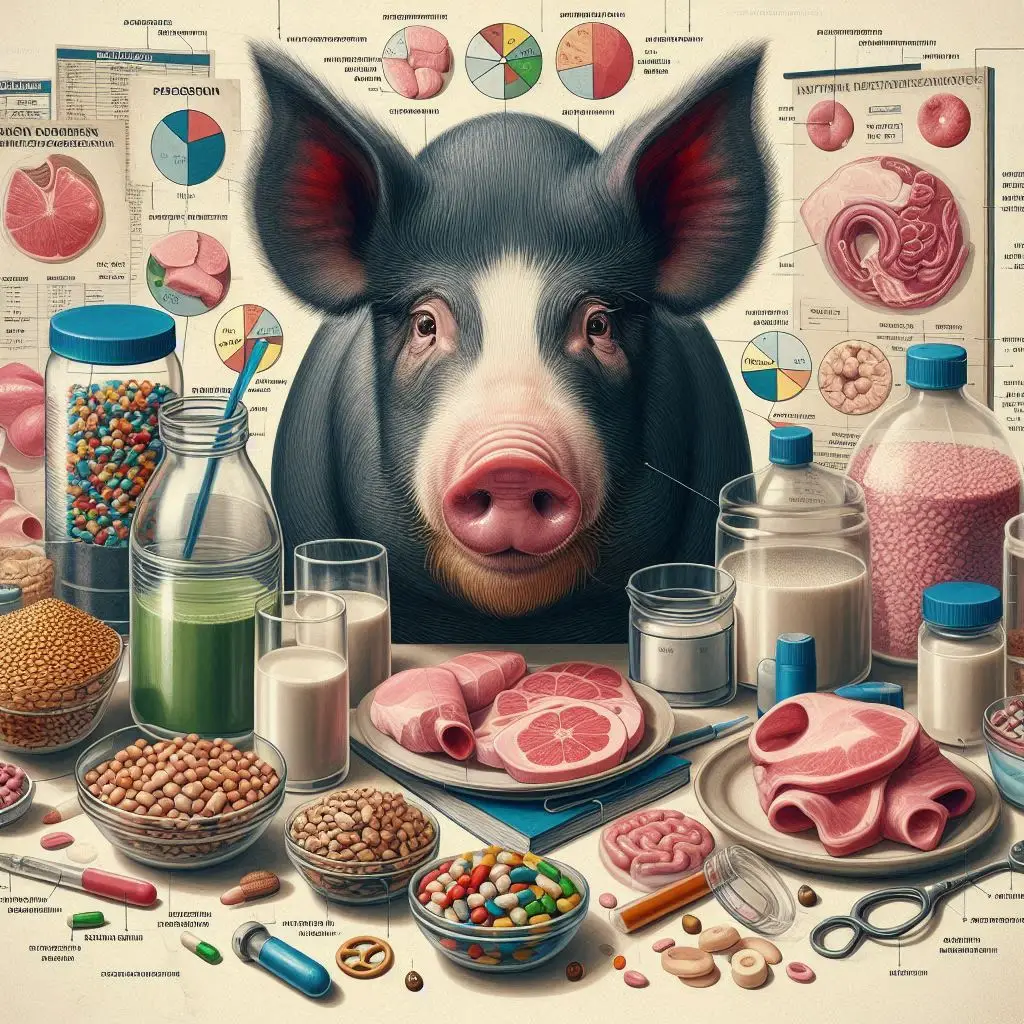Essential Protein Needs for Pregnant Livestock

Pregnancy in livestock, especially cattle, is a critical period that demands careful nutritional management. Proper protein intake is essential not only for the health of the mother but also for the development of the fetus. This article will explore the protein requirements for pregnant livestock, focusing on cattle, and provide practical insights into optimizing their diets.
Understanding Protein Needs During Pregnancy
Stages of Gestation
Pregnant cows experience varying protein needs throughout different stages of gestation. These stages include:
- Early Gestation:
- During this phase, protein requirements are similar to maintenance needs. Cows typically need about 1.5 pounds of protein per day.
- Mid Gestation:
- As the fetus grows, the cow’s nutritional needs increase. At this stage, cows may require around 2 pounds of protein daily.
- Late Gestation:
- In late gestation, the demand peaks. Mature cows weighing approximately 1,400 pounds need about 2.5 pounds of protein each day.
- Lactation:
- After calving, protein needs rise significantly due to milk production demands. A lactating cow may need between 2.25 to 3 pounds of protein daily, depending on milk yield.
Importance of Protein
Protein plays a vital role in several physiological processes during pregnancy:
- Fetal Development: Adequate protein intake supports proper fetal growth and development.
- Milk Production: Sufficient protein ensures quality colostrum and milk production post-calving.
- Body Condition Maintenance: Protein helps maintain body condition scores (BCS), which are crucial for a healthy pregnancy.
Consequences of Inadequate Protein Intake
Underfeeding protein can lead to serious consequences:
- Weight Loss: Cows may not meet caloric needs, leading to weight loss.
- Poor Fetal Development: Insufficient nutrition can negatively impact fetal vigor and survival rates at birth.
- Reduced Milk Quality and Quantity: Both colostrum and milk production can suffer from inadequate protein levels.
Recommended Protein Levels
General Recommendations
For optimal health during pregnancy, it is recommended that:
- Cows in early gestation consume at least 7% crude protein in their diet.
- Late gestation cows may require diets with 8% to 9% crude protein, especially if they are younger or still growing.
Supplementing Protein
Producers have various options for supplementing dietary protein:
- Higher-Protein Forages:
- Incorporating alfalfa hay or other high-protein hays into the diet can boost overall protein levels.
- Byproduct Feeds:
- Feeds like distillers grains are rich in concentrated proteins and can be limit-fed to meet additional requirements.
- Protein Supplements:
- Adding specific supplements based on the cow’s existing diet can help bridge gaps in nutritional needs.
Example Calculation
For instance, if a cow consumes a silage and straw ration with a crude protein level of 6.5%, she will need an additional 0.5 pounds of protein daily to reach the target of 8% crude protein. This can be achieved by adding approximately:
- 1.3 pounds of canola meal (39% crude protein)
- 1.8 pounds of dried distillers grains (28% crude protein)
Factors Influencing Protein Requirements
Several factors influence how much protein pregnant livestock need:
- Body Condition Score (BCS):
- Monitoring BCS is essential as it indicates whether cows are maintaining their health.
- Age and Size:
- Younger cows or heifers often require more protein than mature cows due to ongoing growth.
- Environmental Conditions:
- Weather impacts feed intake and nutrient absorption; thus, adjustments may be necessary based on conditions.
- Forage Quality:
- The quality of available forage directly affects how much supplemental feed is needed to meet nutritional goals.
Practical Feeding Strategies
To ensure that pregnant livestock receive adequate nutrition:
- Regular Assessments:
- Conduct regular assessments of body condition and adjust diets accordingly.
- Balanced Diets:
- Aim for a balanced diet that includes sufficient energy along with proteins to support overall health.
- Monitor Feed Intake:
- Keep track of how much feed cows consume, especially during critical periods like late gestation.
- Adjust Based on Stage of Gestation:
- Be proactive in adjusting diets as cows progress through different stages of pregnancy.
Conclusion
Proper nutrition is crucial during pregnancy in livestock, particularly regarding protein intake. By understanding the specific needs at various stages of gestation and implementing effective feeding strategies, producers can ensure healthier outcomes for both mothers and calves. Regular monitoring and adjustments based on individual cow needs will lead to improved herd health and productivity. Incorporating these practices will help optimize the health and productivity of pregnant livestock while ensuring they receive the necessary nutrients for successful pregnancies and healthy offspring.
For more pearls of Vets Wisdom:
https://wiseias.com/partitioning-of-food-energy-within-animals/






Responses